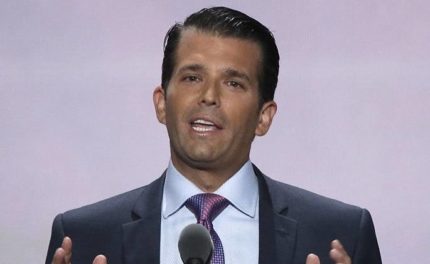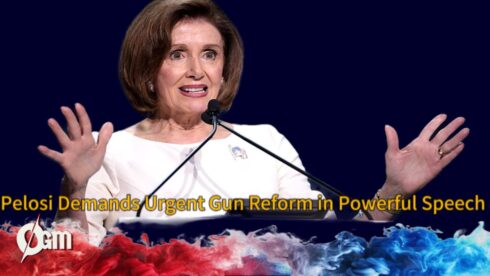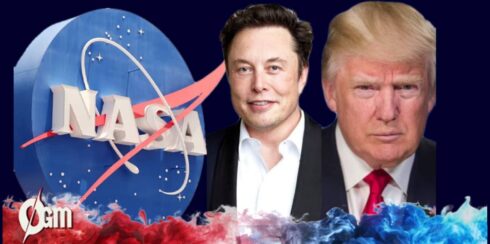Donald Trump Jr. has openly criticized President Joe Biden’s recent decision to permit Ukraine to conduct strikes deep inside Russian territory using U.S.-supplied long-range missiles, suggesting that Biden is intentionally escalating the Ukraine-Russia conflict to complicate any peace efforts by the incoming administration. Donald Trump Jr.’s accusations reflect the sentiments of key Trump supporters who argue that Biden’s decision could have severe global repercussions. “The military-industrial complex seems to want to make sure they get World War 3 going before my father has a chance to create peace and save lives,” Donald Trump Jr. wrote on X.
David Sacks, a tech entrepreneur and significant Trump campaign donor, echoed Donald Trump Jr.’s sentiment. According to Sacks, Biden’s decision not only heightens tensions but may deliberately burden the incoming Trump administration with a difficult foreign policy crisis. “President Trump won a clear mandate to end the war in Ukraine. So what does Biden do in his final months? Massively escalate it,” he argued.
Ukraine to Use ATACMS Rockets Amid North Korean Support for Russia says Donald Trump Jr
Following Biden’s approval, Ukraine is set to launch its first long-range attacks against Russian military targets using ATACMS rockets. These U.S.-supplied missiles can strike locations up to 190 miles away, enabling Ukraine to target Russian assets and military build-up with greater precision and reach than previously possible. Ukrainian President Volodymyr Zelensky, who has long advocated for such weaponry, commented, “The missiles will speak for themselves,” indicating his belief that the expanded missile range could shift the battlefield dynamics in Ukraine’s favor.
In recent months, Russia has been bolstered by the presence of approximately 10,000 North Korean troops. North Korea has also reportedly provided Russia with additional munitions, intensifying the military pressure on Ukrainian forces and pushing Kyiv to seek more extensive military support from Western allies.
Donald Trump Jr: Growing International Tensions as U.K. and France Consider Missile Authorization
The U.S. decision has spurred discussions in allied nations, including the United Kingdom and France, on whether to permit Ukraine to use their long-range weaponry, such as the Storm Shadow missiles, in Russian territory. Both U.K. Prime Minister Keir Starmer and French President Emmanuel Macron have expressed potential support for such an escalation, which could pave the way for expanded missile authorizations within NATO.
While Britain has attempted to allow the use of Storm Shadow missiles in Russia, these weapons rely on U.S. navigation systems, meaning Washington’s permission is necessary. Analysts believe that NATO allies’ hesitation underscores the delicate balance Western nations are attempting to maintain to avoid direct involvement in the conflict.
Escalating Bombardments Spark NATO’s Defensive Measures
The conflict has intensified in recent weeks, as Russia launched one of its largest aerial bombardments against Ukraine. This attack, involving over 120 cruise and ballistic missiles and 90 drones, led NATO to scramble fighter jets from Poland and Romania to protect their airspace. Ukrainian officials reported severe damage to the country’s power grid, leading to widespread blackouts in key regions like Kyiv, Donetsk, and Dnipropetrovsk.
In response to the attacks, Polish operational command issued a statement underscoring the importance of safeguarding their territories. “Due to the massive attack by the Russian Federation using cruise missiles, ballistic missiles, and drones, Polish and allied aircraft have begun operating in our airspace to ensure the safety of bordering regions,” it stated.
European Leaders Express Divided Stance on Diplomatic Engagement
Amid these tensions, German Chancellor Olaf Scholz made an unusual diplomatic overture, calling Russian President Vladimir Putin in an attempt to discuss possible pathways to peace. However, Scholz’s approach faced criticism, notably from Polish Prime Minister Donald Tusk, who argued that dialogue alone would be ineffective against Russia’s military strategies. “No one will stop Putin with phone calls,” Tusk tweeted, expressing doubts about “telephone diplomacy” while calling for increased Western support for Ukraine.
Prime Minister Starmer, en route to a G20 summit, backed the stance of continued support for Ukraine. He remarked, “It’s a matter for Chancellor Scholz who he speaks to. I have no plans to speak to Putin,” underlining his view that Russia’s aggression requires firm Western opposition rather than diplomatic concessions. Starmer also highlighted the security implications posed by the presence of North Korean troops in Russia, underscoring the need for a unified NATO response to the evolving threats in both Europe and the Indo-Pacific region.














